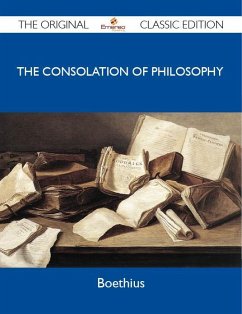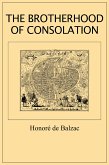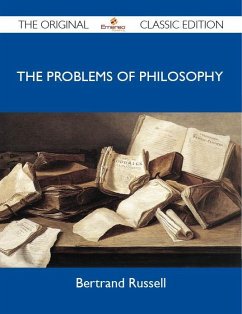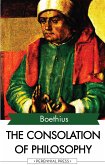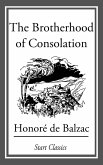This is one of those classics that can catch an unsuspecting reader completely by surprise, especially if one has read many other works by near contemporaries. The circumstances under which it was composed are legendary, and lend the work a legitimacy granted to few other works. Boethius was among the foremost government officials in what was essentially the successor government to the end of the Roman Empire. Rome and much of the rest of what would later become Italy was under the control of the Ostrogoth king Theodoric. A product of one of the leading Roman familes, Boethius ascended to a power of great honor and authority under Theodoric, only to be accused of treason late in the latters life, at which point Boethius was imprisoned and condemned to death. While awaiting his fate (including whether Theodoric actually intended on carrying out the sentence), Boethius wrote this remarkable dialog between a prisoner whose situation closely resembles Boethius and Philosophy personified as a woman. Although many topics are discussed, the heart of the dialog is the nature of true happiness.
Although few of its readers are likely to face circumstances as dire as Boethius, the work remains remarkably pertinent in an age where ideals of happiness are dictated almost entirely by our modern consumer society. Philosophy carefully explains to the prisoner that that happiness can never be found in such things as fame or power or riches and other things that are confused with the true source of happiness. For Boethius Philosophy, happiness is ultimately rooted in the Christian God, but even for non-Christians, the lightly theological tone of the work provides much reflection on the nature of happiness in almost any kind of situation.
This edition of this work is, in my opinion, the finest readily available edition in English. The notes are marvelous, both providing overviews to each upcoming section as well as providing detailed comments on specific lines in the text. The introduction gives any new reader of the work all the context and background that he or she would need to digest the work. Best of all, the translation is exceptionally readable, and the translations of the many poems far above the average for most academic translations of verse.
I recommend this work strongly to either of two kinds of readers. First, for anyone who is a student of intellectual history the work remains for an understanding of a host of writers in the middle ages, as well as for many 19th century poets. Second, anyone interested in devotional or reflectional works, whether religious or philosophical, this remains one of the most essential works in the history of thought. By almost any standard, this is a work that demands careful reading and study.
Although few of its readers are likely to face circumstances as dire as Boethius, the work remains remarkably pertinent in an age where ideals of happiness are dictated almost entirely by our modern consumer society. Philosophy carefully explains to the prisoner that that happiness can never be found in such things as fame or power or riches and other things that are confused with the true source of happiness. For Boethius Philosophy, happiness is ultimately rooted in the Christian God, but even for non-Christians, the lightly theological tone of the work provides much reflection on the nature of happiness in almost any kind of situation.
This edition of this work is, in my opinion, the finest readily available edition in English. The notes are marvelous, both providing overviews to each upcoming section as well as providing detailed comments on specific lines in the text. The introduction gives any new reader of the work all the context and background that he or she would need to digest the work. Best of all, the translation is exceptionally readable, and the translations of the many poems far above the average for most academic translations of verse.
I recommend this work strongly to either of two kinds of readers. First, for anyone who is a student of intellectual history the work remains for an understanding of a host of writers in the middle ages, as well as for many 19th century poets. Second, anyone interested in devotional or reflectional works, whether religious or philosophical, this remains one of the most essential works in the history of thought. By almost any standard, this is a work that demands careful reading and study.
Dieser Download kann aus rechtlichen Gründen nur mit Rechnungsadresse in A, D ausgeliefert werden.

